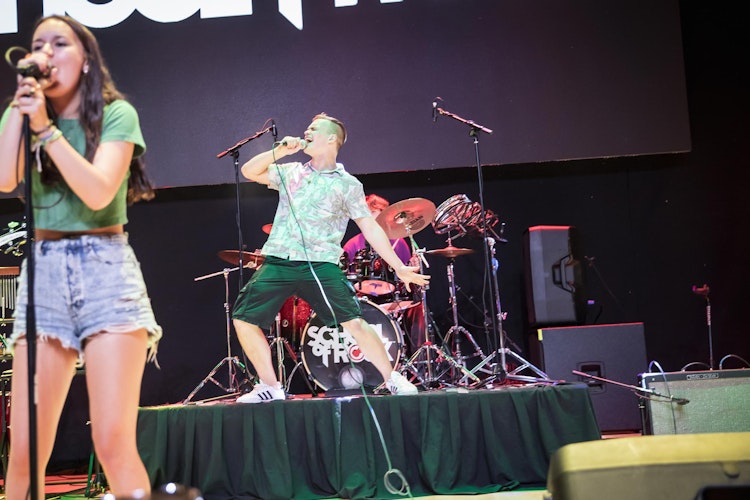Forget about playing “perfectly.” The life of a performing musician is one riddled with flubs, mistakes, and mishaps. There is so much more to figuring out how to be a musician than meticulously drawing inside the lines. A misgiving I hear a lot from my students at School of Rock (and other fellow musicians) is that they will be harshly judged for any mistake they make. Preparation and musical prowess are essential, of course, but the average music fan can spend all day watching guitar virtuosos shred on TikTok and YouTube from the comfort of home. Live music, on the other hand, is defined by emotion and vulnerability. It is a visceral response between the performer and the audience, marked by an infinite amount of possible outcomes. And sometimes, anything that can go wrong, will go wrong. Our job as performing musicians is to prepare both mentally and physically so that we can roll with the punches and properly rock the crowd’s socks off!
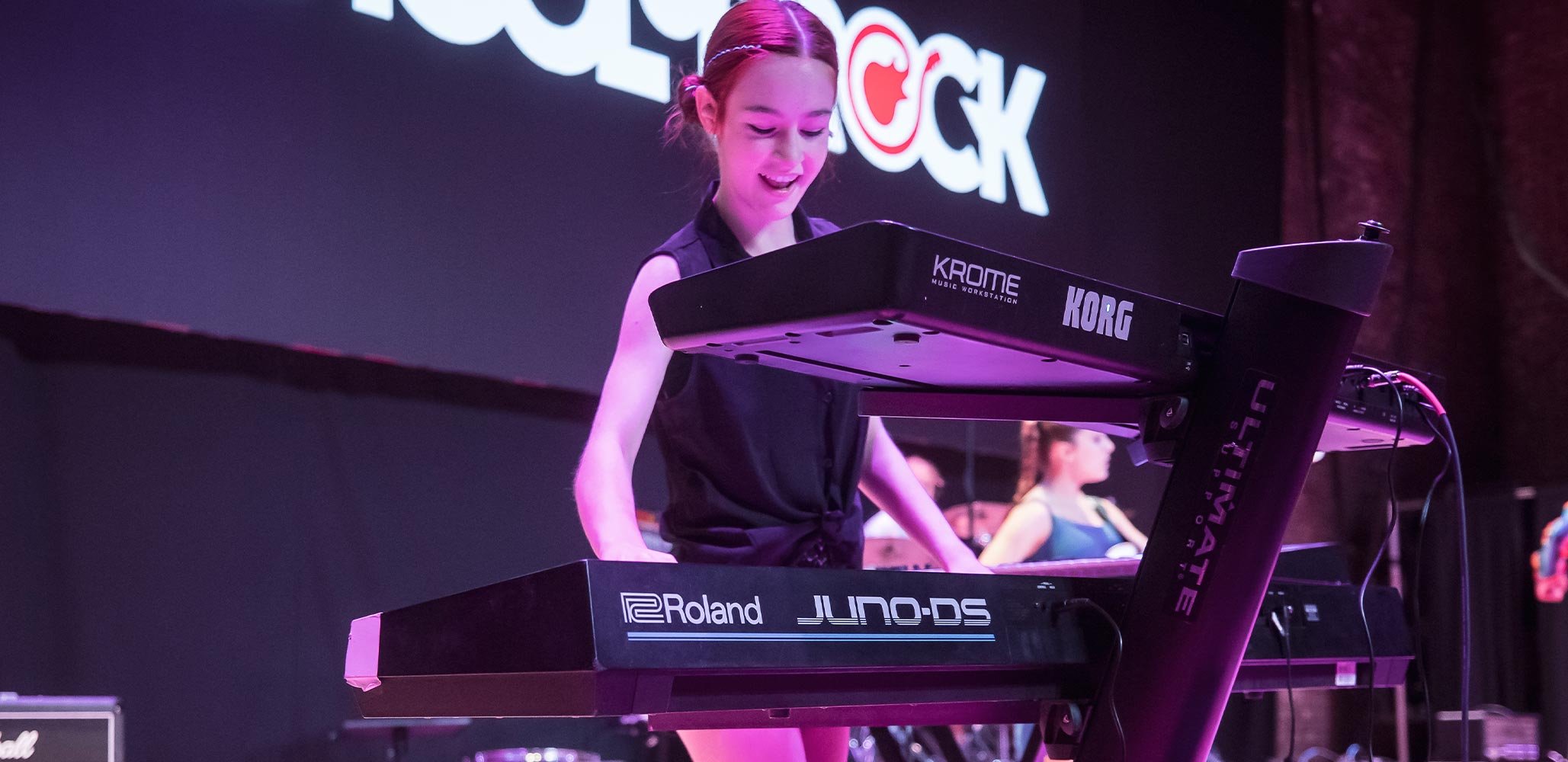
A Positive Attitude
Before we even consider practice, learning how to be a musician starts with attitude. I don’t mean “attitude” in the aggressive, punk rock ethos sense of the word, but simply maintaining a positive mindset. It takes a village to throw an awesome gig. Sound engineers, promoters, venue staff, booking agents, security, merchandise sellers, tour managers, and the audience are all crucial members of the live performance ecosystem. Being the performer on stage doesn’t make you better than anyone else. Maintaining this positive attitude during rehearsals with your bandmates is also crucial. If someone is struggling with playing a part, be patient and offer your support. Respect is truly the name of the game.
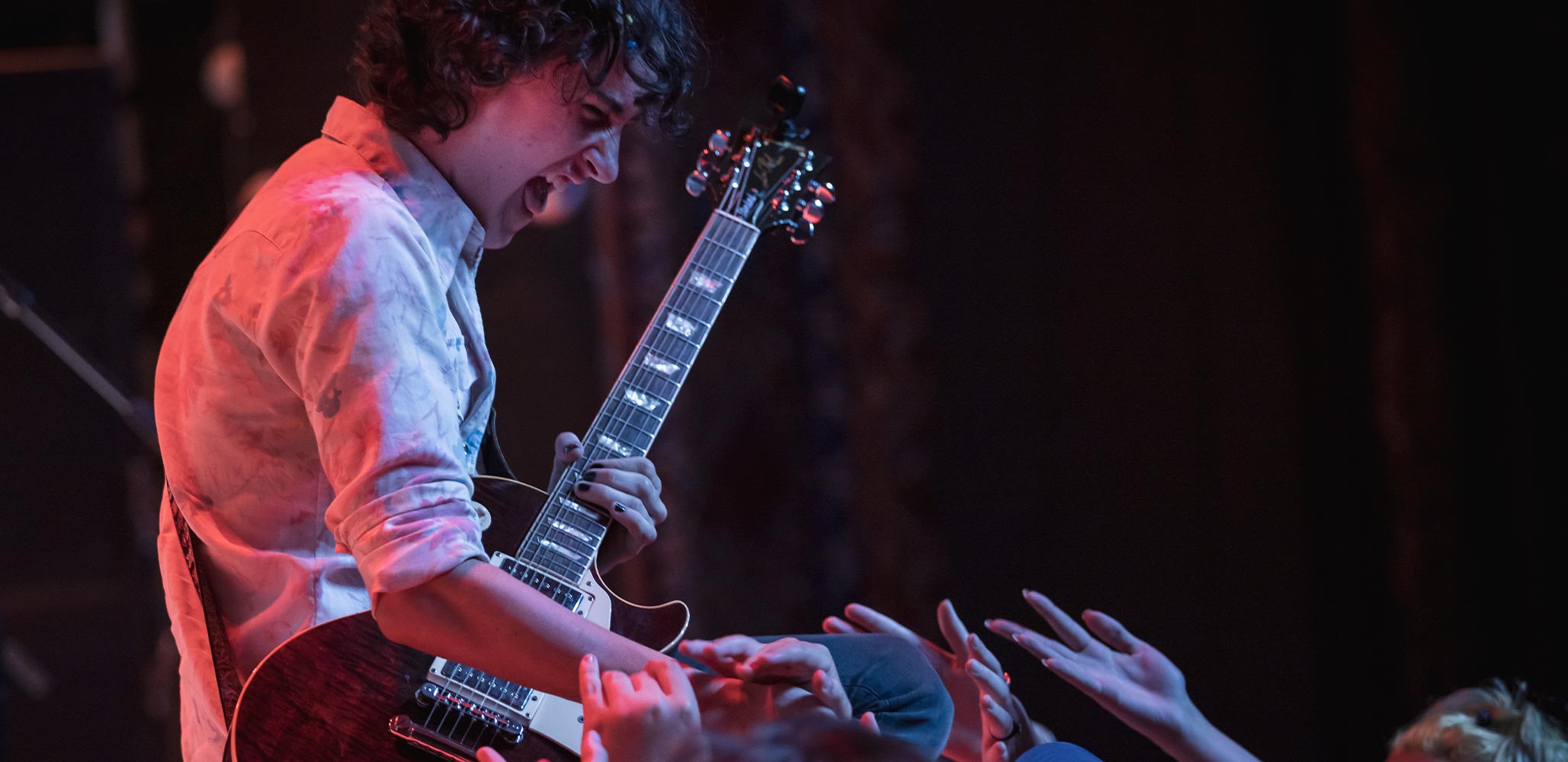
Confidence
Confidence may be the single most important trait of a great performer and anyone looking to see how to be a musician. It does not happen overnight. Confidence is the bloom that comes from hours of nurturing our musical roots with preparation and practice. Practice starts with learning our parts inside and out. Repetition, repetition, repetition! Practice your songs until it becomes muscle memory. Even after all that preparation, confidence does not necessarily come easy (and let’s be honest, for some misguided people it comes too easy). I have found that confidence comes from a conscious choice to believe in myself and my abilities. Confidence can also help you be more creative on stage. This is only possible through a positive attitude and preparation. Here’s the truth: 98% of people will not remember that wrong note you played on guitar in the pre-chorus, nor will they probably even notice it in the first place, but they will remember your presence on stage. Were you timid and indifferent, or did you command their attention? Consider the last amazing concert you saw. Did the performers seem uncomfortable on stage, or did they exude confidence? Remember that music performance is communication between the audience and the musicians. Don’t make it a boring conversation!
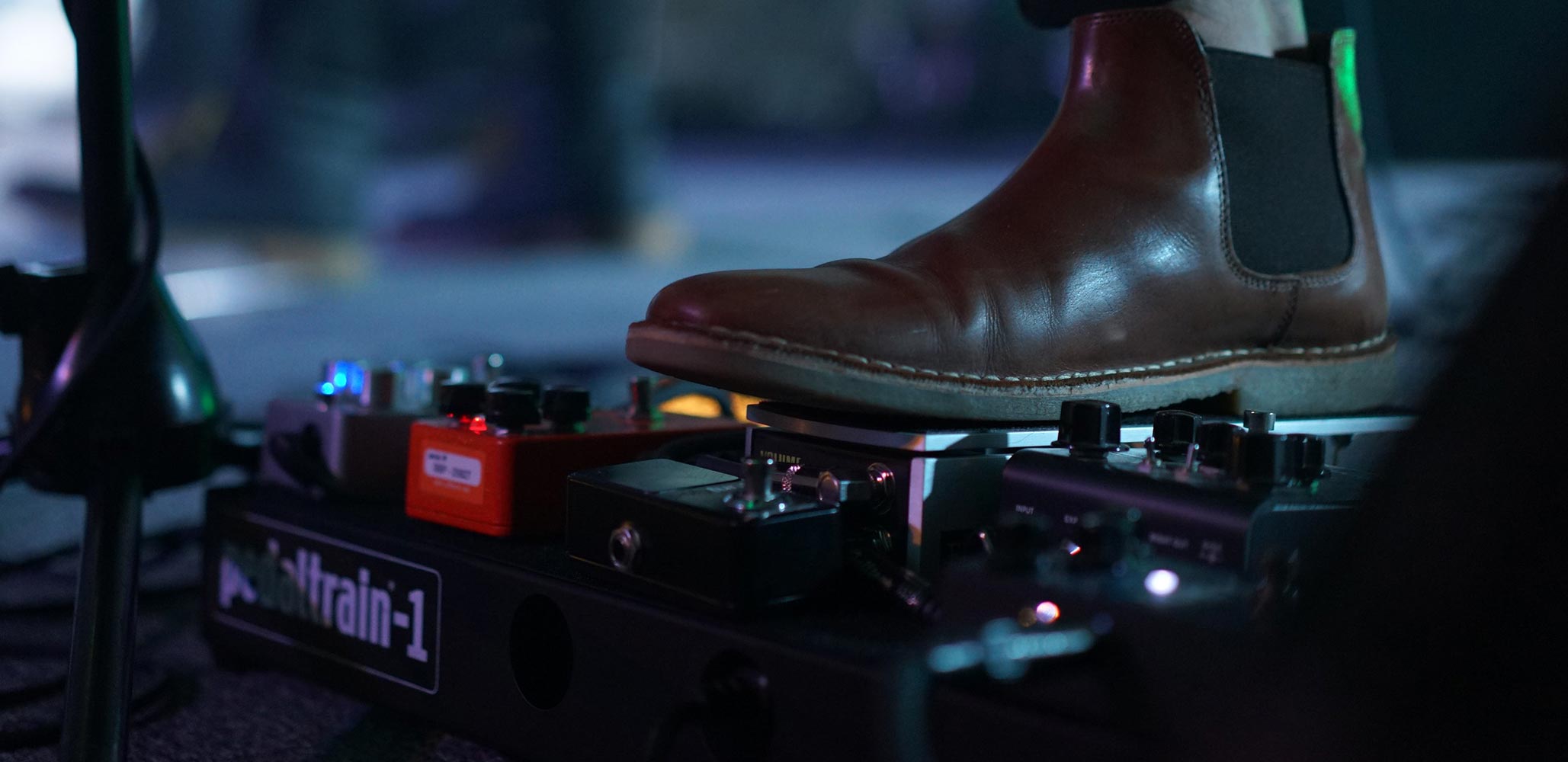
Understanding Our Instrument
A big part of stage confidence comes from understanding the nuts and bolts of our instrument. As I mentioned before, things will absolutely go wrong on stage at some point. It’s the nature of the game! The better we can troubleshoot on the spot, the less of a big deal it becomes. My main instrument is the guitar; there are multiple components necessary just to get an electric guitar to make noise. If just one of these components fails, it can get awkward quickly (cue the crickets). For example, we were playing a show on tour in Texas when my guitar cut out. I used a pedal board at the time with at least eight individual pedals daisy-chained together. Instead of panicking, I used a troubleshooting technique I developed when learning how to be a musician by starting with my guitar and following the signal flow. I double-checked my volume knob, instrument cable, and then patch cables. It turned out that one of my patch cables had come loose, so I simply pushed it back in. Problem solved! Take the time to really understand how your instrument works. Keep extra drumsticks nearby in case you drop one. Stash extra guitar picks and instrument cables nearby. If you are a vocalist, get comfortable with how a mic stand works and then use it to your advantage on stage!
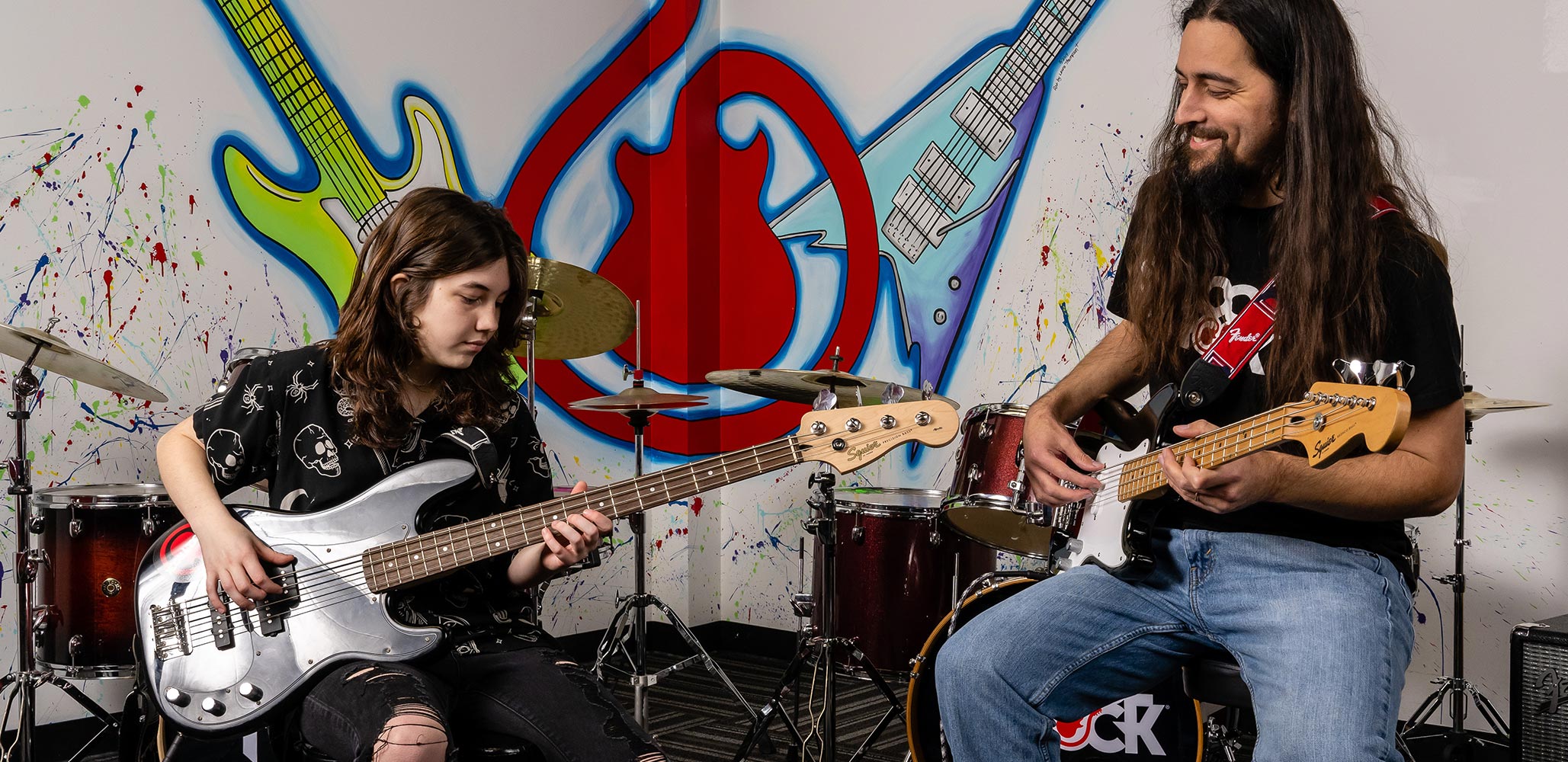
Being Able To Accept Criticism
Keep yourself open to constructive criticism from people you trust. Accepting criticism can be a tough pill to swallow, but it can also be an awesome motivator. Since performing is such a vulnerable experience, it’s easy to take criticism too personally. I have (unfortunately) reacted dismissively to constructive criticism in the past. When you first start figuring out how to be a musician, it’s important to emotionally remove yourself and objectively ask, “Does this person have my best interests in mind?” Most bandmates, instructors, family members, and fans want to see us succeed. However, there is a flipside to accepting criticism. We all have a threshold where criticism can be deconstructive. A person with the best of intentions may be overly critical and cause more damage than good. We also live in the age of social media, where any yahoo with a smartphone and no musical ability can instantly critique and criticize a performance. Be mindful of who you listen to.

Humility and Resilience
Performing music for an audience is a privilege. Whether you are performing at Madison Square Garden or your grandma’s flower garden, always approach the gig with humility and respect. Your favorite musicians all started somewhere; successful careers don’t happen overnight. When learning how to be a musician, there will be inevitable setbacks and shortcomings. Some nights, regardless of how well you prepare, you might just be off of your game. That is okay. What really matters is how you grow and learn from those experiences. Great music performers can pick themselves up after a rough gig and live to rock on another day. Ultimately, performing is supposed to be fun! Don’t lose sight that if you’re having a great time, the audience will too.
About the Author
TJ Horansky is a musician, songwriter, and producer/engineer originally from Cleveland, OH. He has taught guitar, bass guitar, and keyboard + piano at School of Rock Evanston and School of Rock Highwood.



